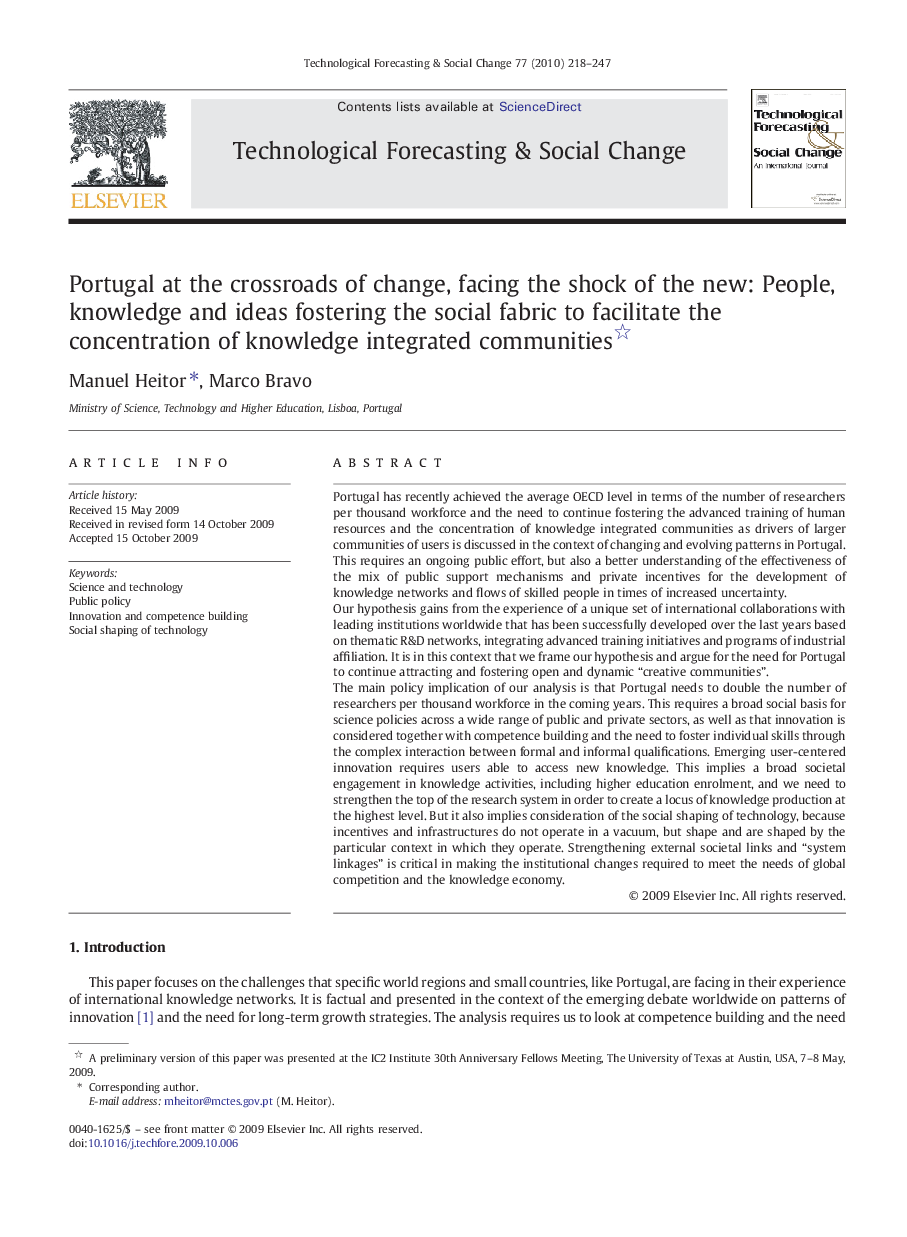| کد مقاله | کد نشریه | سال انتشار | مقاله انگلیسی | نسخه تمام متن |
|---|---|---|---|---|
| 896963 | 914870 | 2010 | 30 صفحه PDF | دانلود رایگان |

Portugal has recently achieved the average OECD level in terms of the number of researchers per thousand workforce and the need to continue fostering the advanced training of human resources and the concentration of knowledge integrated communities as drivers of larger communities of users is discussed in the context of changing and evolving patterns in Portugal. This requires an ongoing public effort, but also a better understanding of the effectiveness of the mix of public support mechanisms and private incentives for the development of knowledge networks and flows of skilled people in times of increased uncertainty.Our hypothesis gains from the experience of a unique set of international collaborations with leading institutions worldwide that has been successfully developed over the last years based on thematic R&D networks, integrating advanced training initiatives and programs of industrial affiliation. It is in this context that we frame our hypothesis and argue for the need for Portugal to continue attracting and fostering open and dynamic “creative communities”.The main policy implication of our analysis is that Portugal needs to double the number of researchers per thousand workforce in the coming years. This requires a broad social basis for science policies across a wide range of public and private sectors, as well as that innovation is considered together with competence building and the need to foster individual skills through the complex interaction between formal and informal qualifications. Emerging user-centered innovation requires users able to access new knowledge. This implies a broad societal engagement in knowledge activities, including higher education enrolment, and we need to strengthen the top of the research system in order to create a locus of knowledge production at the highest level. But it also implies consideration of the social shaping of technology, because incentives and infrastructures do not operate in a vacuum, but shape and are shaped by the particular context in which they operate. Strengthening external societal links and “system linkages” is critical in making the institutional changes required to meet the needs of global competition and the knowledge economy.
Journal: Technological Forecasting and Social Change - Volume 77, Issue 2, February 2010, Pages 218–247